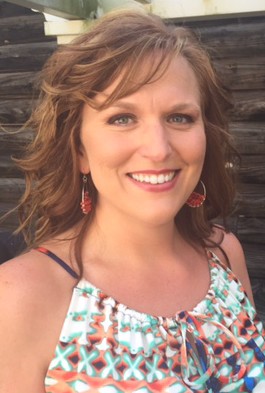
I set the plates and forks on the counter and called my girls to the kitchen. My husband had cooked a pasta dish, and it was time for dinner. We so rarely make it to the table at the same time, but this night, we were having a family dinner.
I spooned my food onto a paper plate and sat down at the table, sneaking a bite or two into my watering mouth. Mostly, I waited for everyone else to fix their plates and sit down with me. Once we were all gathered around the table and ready to eat, I almost blurted out, Who wants to say the blessing? Just as quickly as the thought arrived, I was surprised by it. We haven’t said the dinner blessing at our family table in at least a year or two.
From as far back as I can remember, the blessing was always said before meals, and I carried that habit into my own little family. Old habits die hard, I guess. And, to be sure, it was a habit. I’m sure there are some sincere prayers said around dinner tables, but for most (in my experiences), the blessing is sincerely a habit. It usually goes something like this:
Father (or God, or for the really spiritual, Heavenly Father), thank you for the food you’ve provided. Use it to nourish our bodies. Amen.
It’s a nice way to be thankful, for sure; but let’s not pretend it’s a passionate prayer for the majority of folks who say it.
The day after the family dinner, I went to an event where I watched and listened to other people doing the one thing I’m most passionate about — the one thing that has been almost consistently absent from life for the past three years. It was difficult and frustrating to watch others do what I so badly want to be doing. When I got in my car to leave, tears rushed down my face, and a prayer rose up from my core. I poured out my heart, which was less like flowery, kind words and more like accusations and aching questions and begging.
For months now, I’ve been reminded on a daily basis of four words: I am with you. Every time I see the reminder, I acknowledge it. Ok, you’re with me. On my drive home from the event, while tearfully voicing my desperate prayer, I saw the reminder again. And for once, it wasn’t enough. So I made sure to say that in my prayer, too. It’s not enough anymore that you’re with me; I want you to do something about this situation.
There were no lightning bolts, no signs of reassurance, no peace that passes understanding. Just silence. But by the time I finished that prayer or one-sided conversation or whatever you want to call it, I’d come to believe that maybe those are the kinds of prayers God wants us to pray: Raw. Honest. Real. Passionate.
Maybe those are the kinds of prayers that make us aware of who we are and who we’re meant to be. Maybe those intense, monologue-style petitions are what God loves to hear. I think maybe he prefers them over habitual utterings that require no thought or heart involvement.


